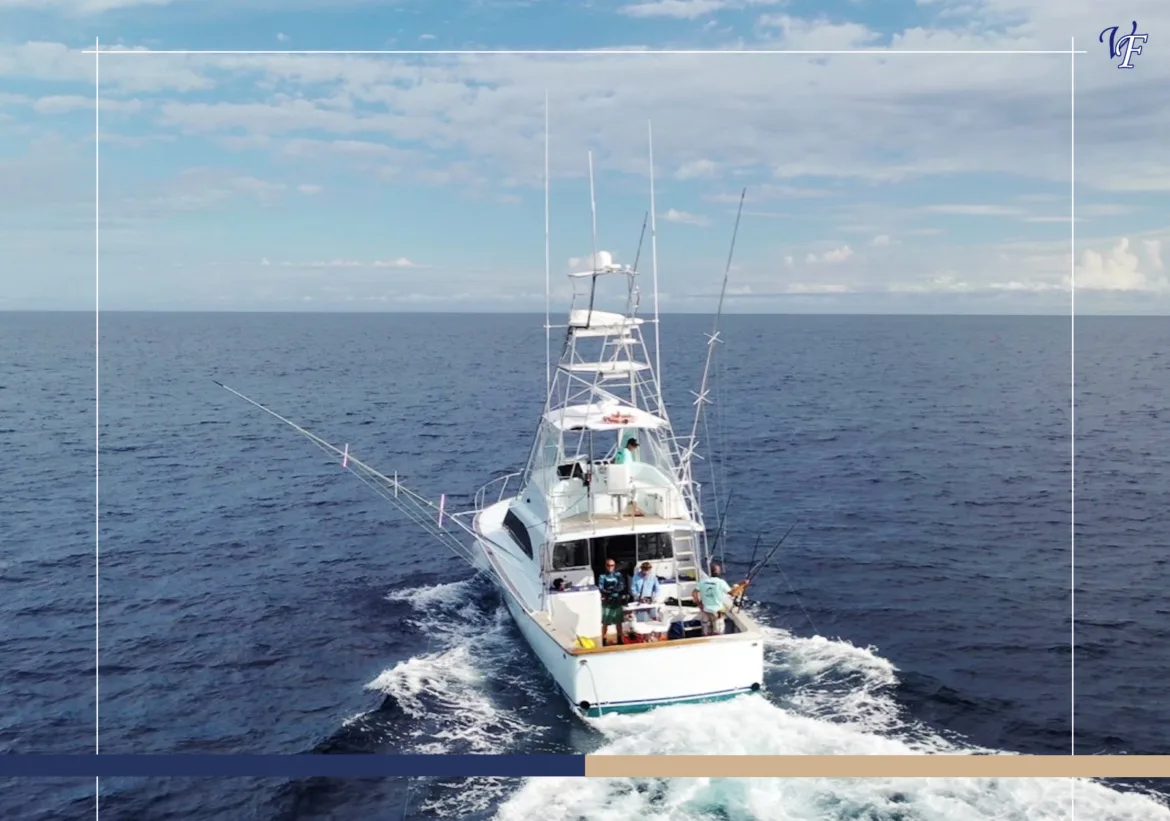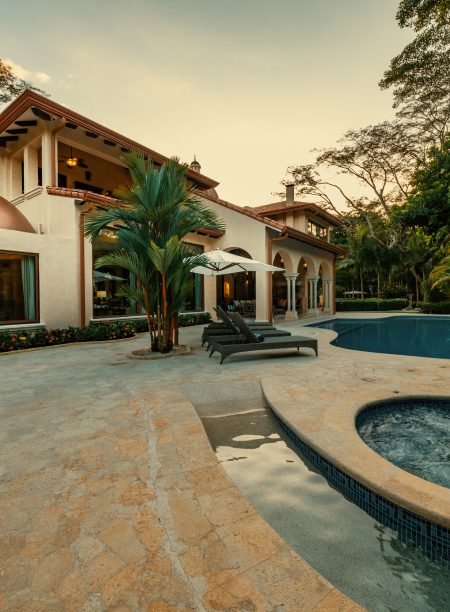Costa Rica’s pristine waters beckon anglers from around the world, offering a chance to connect with nature and experience the thrill of sport fishing. Yet, amidst the beauty of this marine paradise lies a responsibility we cannot ignore. As stewards of these aquatic ecosystems, it’s crucial to understand the actions that can both sustain and harm this fragile environment.
This guide presents the ‘7 Things Not to Do While Fishing in Costa Rica.’ These insights will enhance your angling experience and help protect the natural wonders that make the country a fishing haven.
Disregarding Fishing Regulations and Laws
Fishing laws and regulations in Costa Rica are designed to ensure the sustainability of its marine ecosystems and the conservation of its diverse fish species. Disregarding these legal consequences andences but also poses a significant environmental threat.
Importance of Adhering to Regulations:
- Preservation of Ecosystems: Fishing regulations help protect the delicate balance of marine ecosystems by controlling the number and size of fish caught.
- Conservation of Species: These rules aim to preserve threatened or endangered species and allow their populations to recover.
- Sustainability of Fisheries: By adhering to Costa Rica fishing regulations, anglers contribute to the long-term viability of fishing as an industry.
Consequences of Violations:
- Fines and Penalties: Violating fishing regulations can result in substantial fines and even the confiscation of fishing gear and vessels.
- Ecological Damage: Overfishing and other rule violations can disrupt the food chain and harm non-target species, ultimately destabilizing the ecosystem.
- Negative Economic Impact: Unsustainable fishing practices can lead to declining fish stocks, impacting the livelihoods of local communities dependent on fishing.
- Community Relationships: Violations can strain relationships with communities that depend on responsible tourism and sustainable fishing practices.
- International Reputation: The country’s reputation as an eco-friendly destination can be tarnished by irresponsible fishing practices, affecting tourism and international relations.
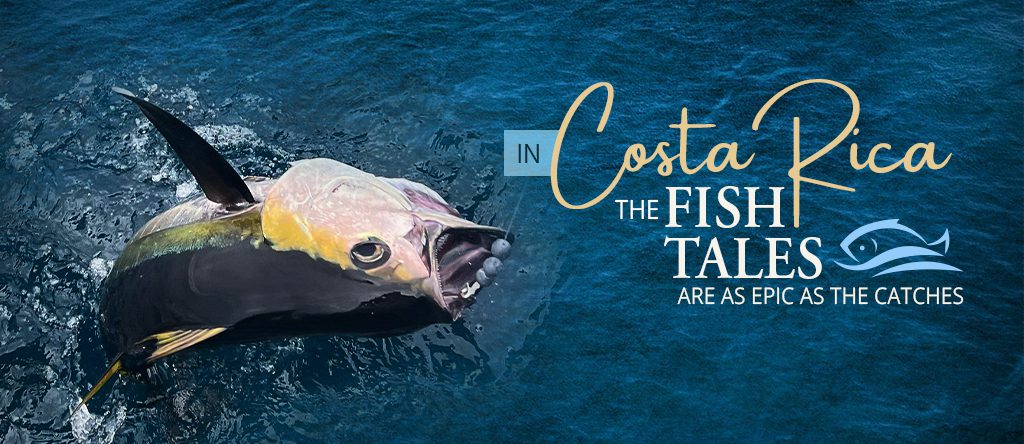
Overfishing and Taking Undersized Fish
Overfishing is a global concern, and the diverse marine life in Costa Rica is at risk if anglers do not practice responsible fishing while participating in fishing tournaments in Costa Rica.
Negative Impact of Overfishing:
- Depletion of Fish Stocks: Overfishing can deplete fish populations, reducing available species and sizes.
- Ecosystem Imbalance: It disrupts the balance within the marine ecosystem, affecting predators and prey alike.
- Economic Consequences: Overfishing jeopardizes the livelihoods of local communities reliant on the fishing industry.
- Future Generations: Sustainable fishing practices are crucial to maintaining fish populations for future generations of anglers.
- Scientific Monitoring: Fisheries need accurate data to set sustainable catch limits, which overfishing can hinder.
Using Harmful Fishing Techniques
Understanding and avoiding harmful fishing techniques is essential to protect marine life and ecosystems.
Identifying Harmful Techniques:
- Dynamite and Cyanide Fishing: These practices can devastate coral reefs, kill marine life indiscriminately, and destroy habitats.
- Bottom Trawling: Dragging heavy nets along the ocean floor can damage sensitive habitats and result in bycatch.
- Ghost Fishing: Lost or abandoned fishing gear continues to trap and kill marine life, posing an ongoing threat to ecosystems.
- Illegal Gillnets: Gillnets that aren’t adequately managed can trap and kill non-target species, including sea turtles and dolphins.
- Overuse of Fish Aggregating Devices (FADs): Excessive use of FADs can lead to overfishing, as they attract a wide range of marine species.
Emphasizing Sustainable Methods:
- Trolling and Handline Fishing: These methods are more selective and have less impact on the environment.
- Fly Fishing: Fly fishing is non-destructive and allows for catch and release.
- Eco-friendly Gear: Choose gear made from sustainable materials and avoid lead-based weights.
- Education and Advocacy: Support efforts to educate fellow anglers about harmful practices and advocate for sustainable alternatives.
- Regulations and Enforcement: Encourage strong enforcement of fishing regulations to deter harmful practices.
Ignoring Local Culture and Customs
When visiting fishing spots in Costa Rica, respecting the local culture and customs is essential. This enhances the fishing experience and strengthens relationships between anglers and the communities they visit.
- Fishing Traditions: Many local communities have deep-rooted fishing traditions. Respecting these traditions can lead to more meaningful interactions.
- Cultural Sensitivity: Awareness of cultural norms and customs helps anglers avoid unintentional offense and fishing mishaps.
- Engaging with Locals: Engaging with local fishermen and communities can provide unique insights into fishing techniques, local ecosystems, and the best spots to fish.
- Supporting Local Economy: Supporting local businesses, such as family-owned fishing charters and restaurants, contributes to the economic sustainability of coastal communities.
- Sharing Knowledge: Anglers can share their knowledge and skills with local communities, fostering a mutually beneficial relationship.
Littering and Polluting
Anglers are responsible for preserving the pristine waters of Costa Rica by minimizing their impact on marine pollution, a pressing global issue.
- Types of Pollution: Marine fishing-related pollution takes various forms, including discarded gear, plastics, and oil spills. These pollutants threaten the health of our oceans and the creatures that call them home.
- Environmental Consequences: Marine pollution has far-reaching consequences. It harms marine life by entangling animals and causing ingestion of plastics. It damages delicate ecosystems, disrupts the food chain, and threatens the ocean’s health.
- Global Concern: It’s essential to recognize that marine pollution is not limited to Costa Rica; it’s a global concern. Our oceans are interconnected, and actions in one part of the world affect marine life everywhere.
- Responsible Gear: To combat marine pollution, anglers can play their part by using biodegradable fishing gear and responsibly disposing of materials. Opt for equipment that minimizes environmental impact, such as lead-free weights and eco-friendly fishing lines.
- Environmental Stewardship: Take part in beach clean-up initiatives and embrace responsible waste management while fishing. By leaving no trace, you help protect the beauty of the coastlines for future generations of anglers and nature enthusiasts.
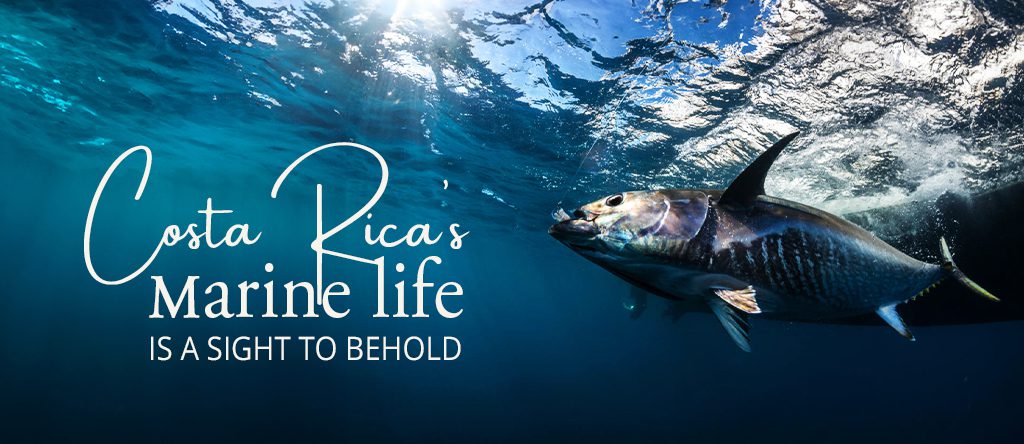
Disturbing Coral Reefs and Ecosystems
Coral reefs are delicate ecosystems vital in maintaining marine biodiversity and protecting the coastline. As an angler, understanding the importance of preserving these reefs is essential.
Fragility of Coral Reefs:
- Importance of Coral Reefs: Coral reefs are not just underwater marvels but the cornerstone of marine biodiversity. They provide habitats for countless species of fish, create a natural barrier against coastal erosion, and support the livelihoods of many coastal communities.
- Biodiversity Hotspots: Coral reefs are biodiversity hotspots, teeming with many species. These vibrant ecosystems are home to colorful fish, fascinating invertebrates, and mesmerizing coral formations.
- Susceptibility to Damage: Coral reefs are susceptible to physical contact, pollutants, and rising sea temperatures. Even a slight touch can cause irreparable harm. It’s vital to handle these environments with care.
- Global Coral Bleaching: The health of the coral reefs is closely tied to the global issue of coral bleaching. Rising sea temperatures due to climate change stress the corals, causing them to expel the symbiotic algae that provide their vibrant colors and sustenance.
- Consequences of Damage: Damage to coral reefs can result in a cascading effect on the ecosystem. A decline in fish populations can lead to food scarcity for local communities that rely on fishing. Preserving these reefs is not just an environmental concern; it’s crucial for the well-being of coastal societies.
Guidelines for Preservation:
- Anchor Responsibly: When anchoring, avoid coral reefs to prevent damage. Many charter services have GPS systems to help you find suitable anchoring spots.
- Snorkeling and Diving Etiquette: Remember to follow responsible practices if you plan to snorkel or dive near coral reefs. Avoid touching or standing on the coral, maintain proper buoyancy, and be mindful of your fins to prevent accidental damage.
- Support Conservation: Several organizations in Costa Rica are dedicated to coral reef conservation. Consider supporting them through donations or volunteering opportunities to contribute to the protection of these invaluable ecosystems.
- Marine Protected Areas: Explore marine protected areas around coral reefs designed to safeguard these fragile environments. These areas often have regulations in place to preserve coral health.
- Educational Opportunities: If you want to learn more about coral reef conservation, the country offers various educational programs and resources for anglers and enthusiasts. Engaging with these resources can deepen your appreciation for these ecosystems.
Neglecting Safety Precautions
While fishing in Costa Rica can be an exhilarating experience, it’s crucial to prioritize safety, especially in the unpredictable sea conditions.
Essential Safety Measures:
- Safety Gear: Ensure you and your fellow anglers have the appropriate safety gear before setting out. Life jackets, wide-brimmed hats, and polarized sunglasses are essentials to protect against unexpected mishaps.
- Weather Awareness: Stay informed about weather conditions before and during your fishing trips. Sudden storms or changes in sea conditions can pose risks, so being prepared and adaptable is essential.
- Experienced Captains: Choose charters with experienced captains who prioritize fishing safety. Their knowledge of local waters and weather patterns can be invaluable in ensuring a safe and enjoyable fishing experience.
- Emergency Preparedness: Accidents can happen, and preparing for them is essential. Familiarize yourself with the location of safety equipment on board and know what to do in case of medical incidents, fires, or capsizing.
- Risk Mitigation: Following fishing safety precautions minimizes potential risks and enhances the fishing experience. Safety allows you to fully immerse yourself in the thrill of sport fishing while ensuring a safe return to shore.
Sustainable Fishing Practices in Costa Rica
Ensure your angling experience in Costa Rica is not only memorable but environmentally responsible by following these essential tips:
- Know Your Seasons and Limits: Research fishing seasons and catch limits to protect breeding populations and fish stocks.
- Adopt Catch-and-Release: Gently release undersized, endangered, or excess catch using barbless hooks.
- Choose Sustainable Gear: Opt for biodegradable fishing lines and non-toxic lead alternatives.
- Support Conservation: Get involved with local initiatives and organizations dedicated to marine preservation.
- Practice Responsible Boating: Follow no-wake zones, avoid coral reefs, and anchor in designated areas.
- Educate Yourself and Others: Learn about species, life cycles, and ecosystems, and share knowledge with fellow anglers.
- Report Illegal Activities: Report illegal or destructive fishing practices to local authorities or conservation organizations.
By embracing these sustainable fishing practices, you enhance your angling experience while contributing to marine conservation.
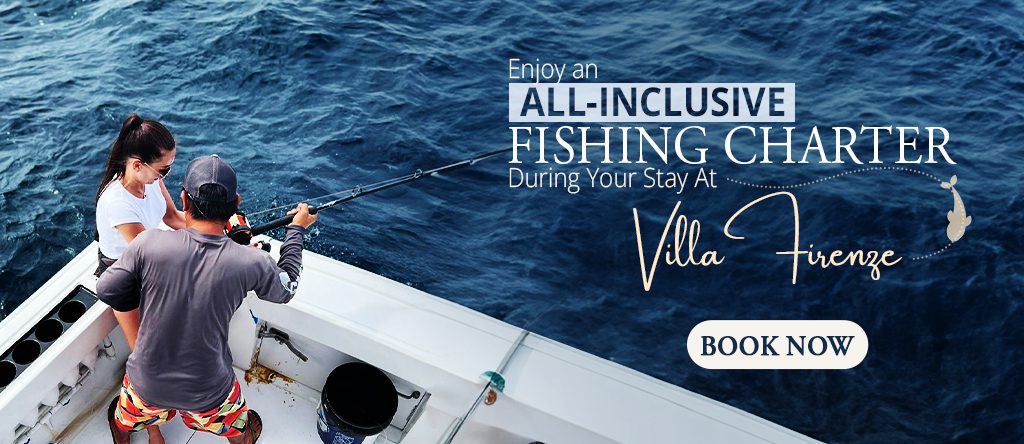
Conclusion
The enchanting waters offer a unique fishing experience, but with that privilege comes a responsibility to protect its marine treasures. By adhering to regulations, respecting local culture, knowing the fishing season in Costa Rica, and adopting sustainable practices, anglers can enjoy the beauty of the seas while safeguarding them for future generations.
For those seeking an exceptional fishing adventure, consider Villa Firenze as your accommodation choice in Costa Rica. With an all-inclusive fishing charter package, our luxury villa rental in Costa Rica offers a lavish stay and an opportunity to experience responsible and sustainable angling in this aquatic paradise. It’s a win-win for your fishing expedition and preserving the marine ecosystems.




